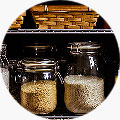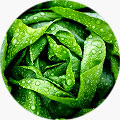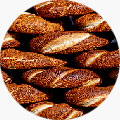Pure Sahlep - 100% Dogal Saf Salep
30g
Most exclusive, premium quality natural pure sahlep.
Origin: Turkey
What is Sahlep?
Sahlep; It is an endemic and very valuable plant belonging to the orchid family. The tubers of some species of orchid, which has more than 10 thousand varieties, are consumed as salep. Real salep is the form of orchid seedlings that grow on its own in the mountains, meadows or obtained by agricultural production.
It belongs to the Orkidgiller family, whose Latin name is Orchidaceae. The glucomannan contained in the tubers swells when combined with water and milk and provides the taste of salep. In addition, salep tubers are also used as raw materials in ice cream production.
The salep plant, which was first grown in Middle Eastern cities and started to be used in the 8th century, was actually known before those years. However, salep was used more in medicine and commerce than as a beverage; even in mythology, salep can be found. Therefore, it would not be wrong to say that its real discovery was in the 8th century. The 8th century coincides with the period when the Turks accepted Islam. The prohibition of alcoholic beverages at that time led to an increase in the demand for salep, and even "salep shops" were opened.
The historical medical philosopher Ibn Sina gives detailed information about salep in his work called "The Law". Salebe tries to clarify with qualifications such as appetizing and mind-opening. Another of the most important data is written in the paste books of the Ottoman Empire. There is information about salep in different parts of this book, where the paste recipes prepared for the sultans are recorded.
Salep, which is one of the indispensables of the winter months, is an indispensable source of pleasure that we all love and warm our hearts. In fact, salep is much more than pleasure. Salep has many benefits for our health, but for this, it must be pure and natural.
The spread of salep, which is unique to the Middle East, in Europe dates back to before the rise of coffee and tea. Salep has become the alternative beverage of coffee-drinking cafes in England and Germany. Also known as "saloop" in England, this drink was prepared in the 17th and 18th centuries by adding water to sahlep powder to give it a thick consistency and flavoring it with orange flower or rose water. Long before coffee, salep was consumed with bread with butter in the salep shops of England. Orchid roots grown in England in these centuries were used instead of the Anatolian orchid used by the Turks.
Today, salep is prepared with hot milk instead of water, and it is a unique fragrant drink on cold winter days. Instead of drinks such as wine and kumiss, which were banned in the past, Turkish society preferred to consume must in summer, boza and salep in winter. In winter, sahlep was sold in churn on the streets, and it was drunk in large porcelain cups.
During the Ottoman Empire, salep, which had many benefits for the body, was added to the sultan's strength paste as well as a thousand and one spices. Salep is a very healing drink that facilitates digestion and relaxes the stomach, warms the body in winter days and gives resistance. At the same time, the raw material of salep drink is also included in ancient medicine books. Saleb has an important place in the content of "Philosophers' Paste" described by Ibn Sina. Salep is also an important component of the famous Maraş ice cream. For this reason, this famous ice cream of Kahramanmaraş contains "the sultan's paste!" it was sold. Goat milk, salep and sugar were used in making ice cream. Salep is the only ingredient that gives Maraş ice cream its famous hardness, flexibility and flavor.
The salep drink, known and consumed in the Ancient Roman period, is obtained from the underground tubers of the Anatolian orchid. After these tubers are cleaned, their enzymatic activities are stopped by boiling them in milk or ayran, and then they are dried in the open air. When the dried tubers are turned into powder, salep powder is obtained. An average of 2600 orchids are needed to obtain 1 kilogram of this powder. An estimated 30 million orchid tubers are collected annually in Turkey. This amount is quite high and endanger the type of orchids obtained from salep.
The regions where salep orchids are most common are Kastamonu in North Anatolia, Muğla, Antalya, Silifke in South Anatolia, Maraş, Malatya, Adıyaman in the Southeast, Bitlis, Van and Muş in the East. Salep, which comes to our tables in winter, sweetens our palates and warms our hearts, is obtained from 38 different types of orchid plants belonging to 10 different genera grown in the fertile soils of our country. The export of the tubers of these plants is prohibited and can only be marketed abroad in the form of processed powder.
While it is snowing outside, while sitting by the window and sipping your warm salep with plenty of cinnamon on it, remember the fragrant and precious orchid flowers of Anatolia. From ancient Rome to the streets of London, take a trip back in time with this beverage, which was consumed long before the spread of coffee and the famous English tea alongside the buttered breads of Europe. Now you know the secret of Maraş ice cream and the power of sultan's paste...
How to make sahlep?
It is very easy to make salep, which is consumed lovingly, especially in the winter season. Powdered salep is mixed with sugar in a saucepan. After adding cold milk to it, it is boiled by mixing until it thickens and gets a consistency. When the smell of saleb begins to be felt, it is taken from the stove and served hot. If desired, it can be sprinkled with cinnamon on it, making the service both elegant and delicious.












